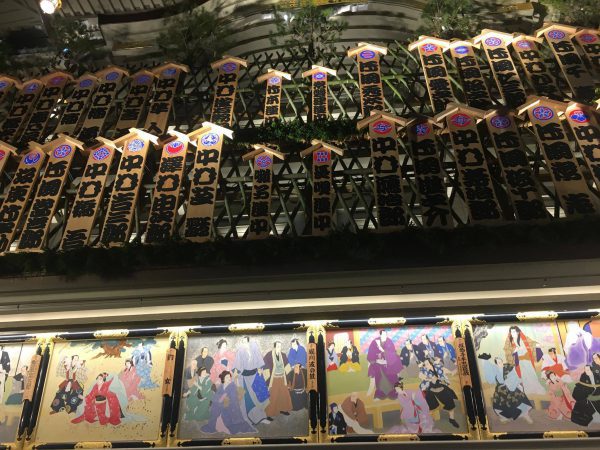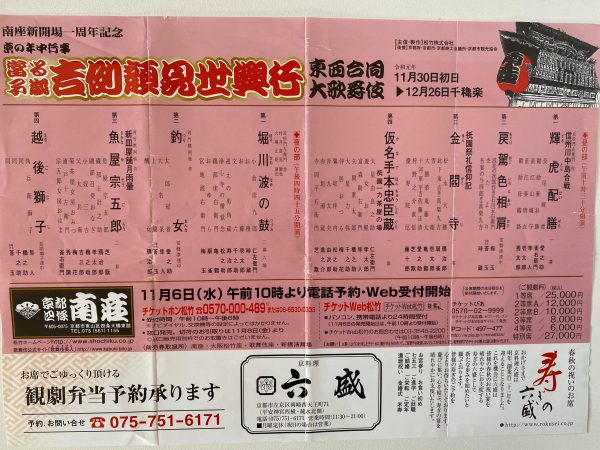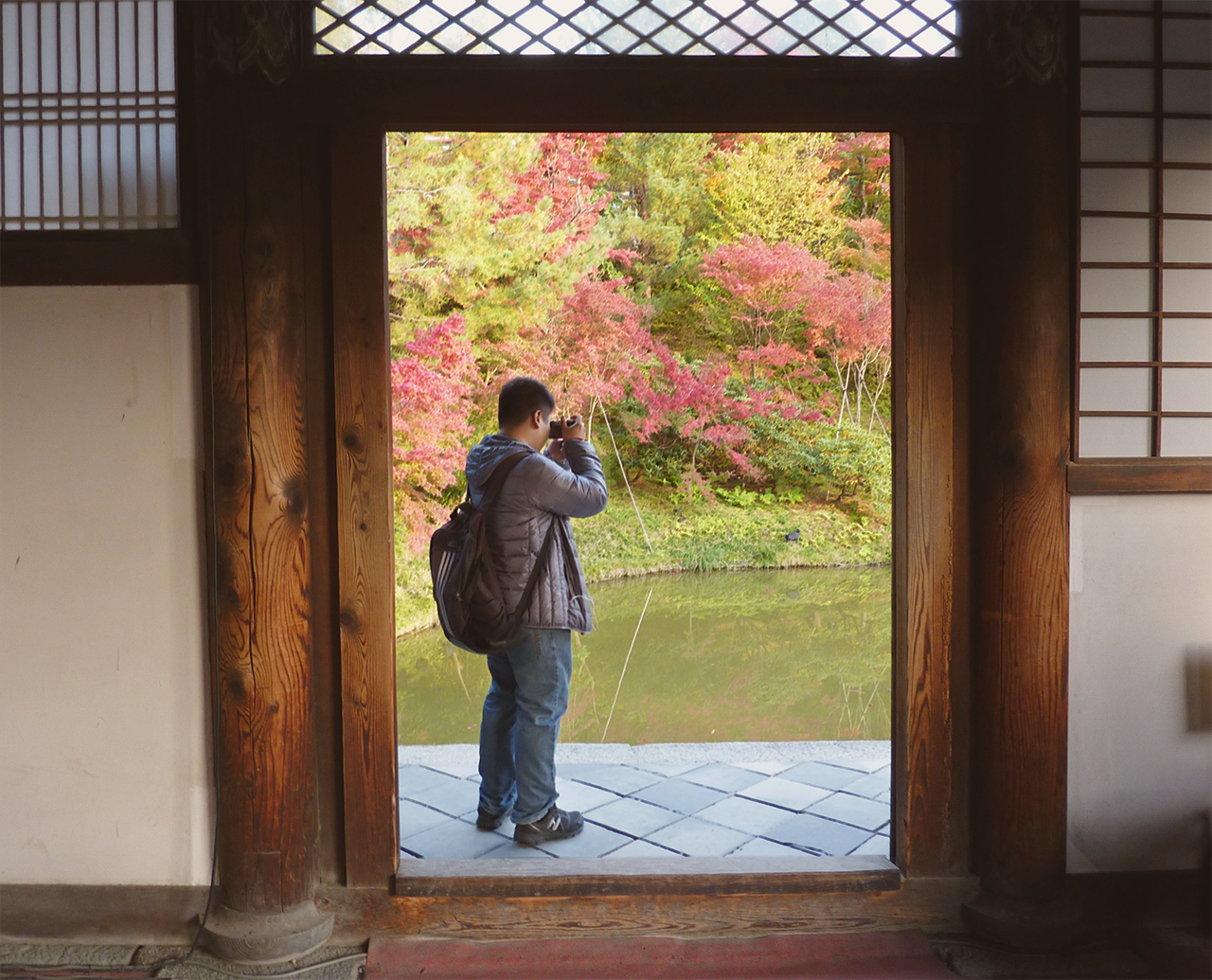Into the World of Kabuki
2020.04.27
If your loved one has an affair, you kill them?!
Of the four plays, the one that left the greatest impression on me was the historical drama at the top of the show, Horikawa Nami no Tsuzumi. I felt it was a real honor to be able to actually see an actual performance of one of the works of Chikamatsu Monzaemon, who is said to be the master of kabuki. A summary of the story would look something like this: While husband Ogura was away from his home, his wife Tane has an affair. When Ogura returns home, he discovers his wife is pregnant, and even though it fills him with sadness, he kills her with own hands. To me, the values of Edo period people, like the idea that, “If your loved one has an affair, the only option is to kill them,” were completely unheard of. It also made me realize that the values and ethics of a kabuki play’s time period are blended into it. I think that’s one reason it’s important to study and preserve kabuki as an important part of Japan’s heritage.

Even though I’d been looking forward to Horikawa Nami no Tsuzumi the most, out of the four plays, the Japanese language in this one was the hardest to understand. Even during the Edo period, this play was a period piece, so the vocabulary it used was much older than the other three plays. Luckily, my professor had helped me to get familiar with the story in advance. But because it was so hard to understand, I also made sure to listen carefully. That’s actually why it ended up being so memorable for me: for all the difficulty I had with the Japanese, I studied beforehand, and was able to focus even more when I saw the play.

Kabuki is an ever-evolving art
Since seeing a live show, my understanding of kabuki has changed. Kabuki is well-loved, even in modern times. Before I saw a performance for myself, I kind of misunderstood kabuki. Kabuki is a tradition, and I thought the art form was only trying to preserve the traditional ways. Kabuki has changed over time, but I used to think that it had been carried on until the present day, retaining the old ways and not adapting to modern society at all.
As it turns out, at the live kabuki performance I experienced, the seats were still full of people, the program was varied, and new plays are regularly debuting. Even popular modern anime shows are dramatized for kabuki. That was a big surprise for me. Kabuki is evolving to adapt to modern society.
Since realizing this, I’ve come to think that modern kabuki plays are not the evolutionary endpoint of traditional plays, but just a point in the middle of the process. It’s this kind of evolution, I think, that’s vital to the genre of It’s true of kabuki, but it’s true for the rest of us, too: we’re all just standing at a point in the middle of history.
Why not come to the historical city of Kyoto yourself, and experience the world of kabuki? You’re sure to learn something wonderful!
Text: KIM Soomin, Doshisha University
Kabuki Web (Shochiku Official English Website) Minami-za page+











